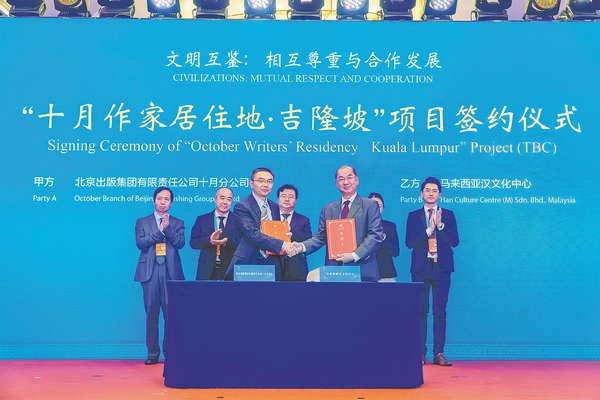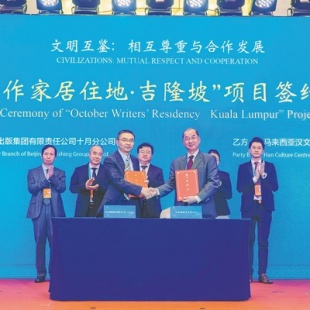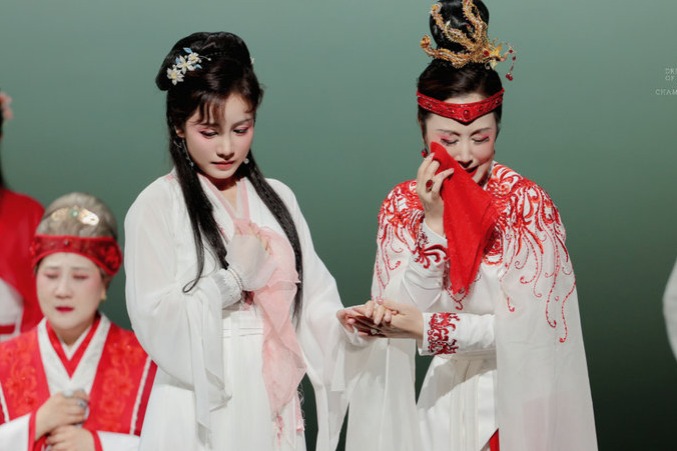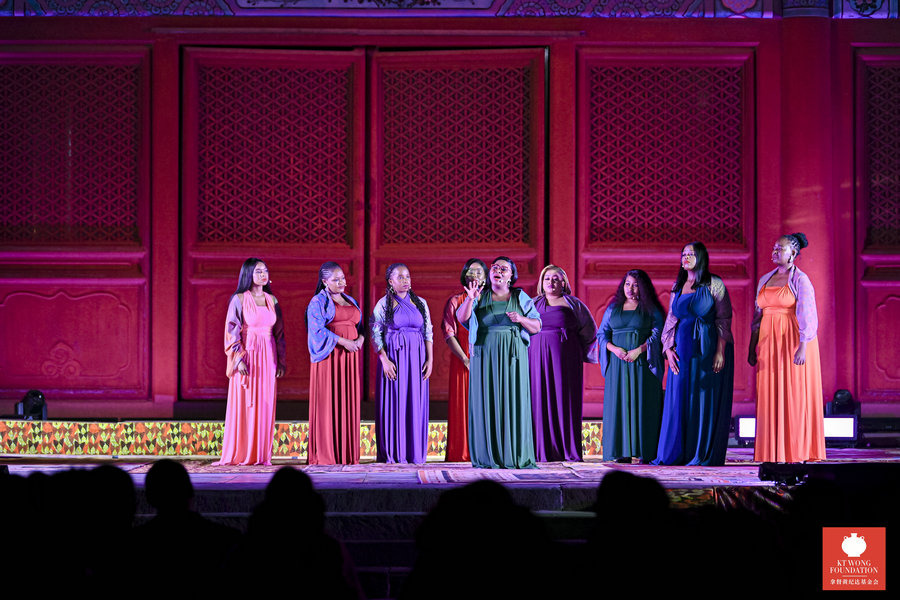Bonds of literature with Malaysia help turn a new page


A writers' residence will be launched in Kuala Lumpur later this year to enhance literary ties between China and Malaysia, according to a cooperation agreement signed on Sept 15.
The signing between the October Branch of the Beijing Publishing Group and the Malaysia Han Culture Centre was part of the 2023 Beijing Culture Forum held on Sept 14 and 15, which was organized by the Publicity Department of the Communist Party of China Central Committee, the CPC Beijing Municipal Committee and the Beijing municipal government.
The upcoming residency program will invite Chinese and foreign writers and translators to experience life in Kuala Lumpur, creating new works and exchanging ideas with each other, and will organize book release events and public lectures, according to Chen Dongjie, general manager of the October Branch of the Beijing Publishing Group.
The branch owns the influential literature magazine October, which was founded in 1978.
These days, Chen's company has been turning October into a literary brand with a series of events, including the writers' residency program that started six years ago.
Previously, they have established such residencies in 13 domestic and overseas cities, including Edinburgh, Kathmandu, Beijing, Lijiang and Lizhuang ancient towns, respectively in Yunnan and Sichuan provinces.
The Kuala Lumpur residency's working venue at Malaysia's Dewan Bahasa dan Pustaka (Institute of Language and Literature) will be put into use within this year, and they will also set up exclusive counters at local bookstores for works published by the Beijing Publishing Group, Chen adds.
Through the residency program, he says, he hopes to work with Malaysian publishing institutions to cultivate outstanding writers, publish quality works and attract more Sinologists and translators to join the literary undertaking.
Datuk Goh Hin San, president of the Malaysian center, says that living in Malaysia for a couple of months will enable sensitive and observant Chinese authors to have a deeper understanding of local customs and people, which will benefit their writing.
Such experience may open up an international horizon and inspire them to review their work from an alternative perspective, he says.
Next year marks the 50th anniversary of the establishment of the two countries' diplomatic relations. Goh says he hopes the residency program will be a literary highlight to celebrate the bond.
Goh has been endeavoring to promote Chinese literature, culture and language education in Malaysia for more than 30 years.
Official statistics shows that ethnic Chinese makes up around 23 percent of the Malaysian population. Goh has put an emphasis on promoting Chinese culture to mainstream Malaysian society in recent years.
His team has translated the four household classic Chinese novels — Journey to the West, A Dream of Red Mansions, Romance of the Three Kingdoms and The Water Margin — into Malay.
They've particularly paid attention to localizing the content so that it's easier for Malaysians to understand.
For example, they applied traditional Malay poetry forms in translating those in A Dream of Red Mansions. When putting classic stories of Journey to the West on stage, they replaced the Chinese monsters with local ones.
"We want to tell the stories of traditional Chinese culture using Malay elements that audiences are more familiar with," he says.
For him, this is a practice of their long-standing philosophy, the idea of hehe (harmony and unity).
"There's part of me in you, and part of you in me. Chinese culture is shared by people all over the world," Goh says.
Over the past years, his center has translated and published more than 100 books in cooperation with over a dozen Chinese publishing houses.
In collaboration with the Beijing Publishing Group, they have translated and published best-selling contemporary Chinese literature works like Jade King: History of a Chinese Muslim Family by Huo Da and Ordinary World by Lu Yao, and both are read in Malaysian schools.
According to Goh, mainstream Malaysian society is curious about China's reform and opening-up, and what Chinese people are thinking. With the Belt and Road Initiative that was initiated 10 years ago, introducing and translating Chinese literature works has become more smoothly.
Meanwhile, works of Malaysian writers like Ng Kim Chew and Lim Pow Leng, both writing in Chinese, have been popular in China and received high marks on review site Douban.
"These writers have powerful Chinese language capabilities and sophisticated writing skills. They are resilient and hardworking. Their writing horizon is fresh for Chinese readers," Goh says, adding that writers from both countries should learn and get inspiration from each other.
"When people have cultural exchanges, mutual understanding and sentiments, we will get twice the result with half the effort in promoting other matters within the BRI framework," he adds.




































